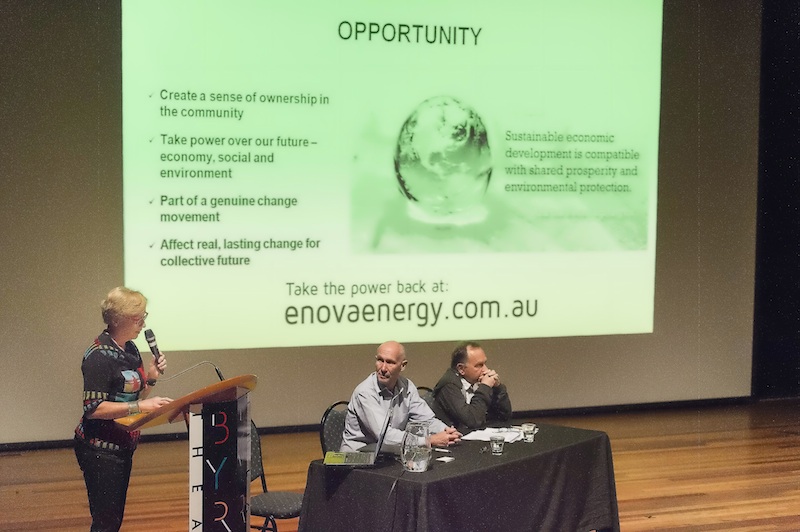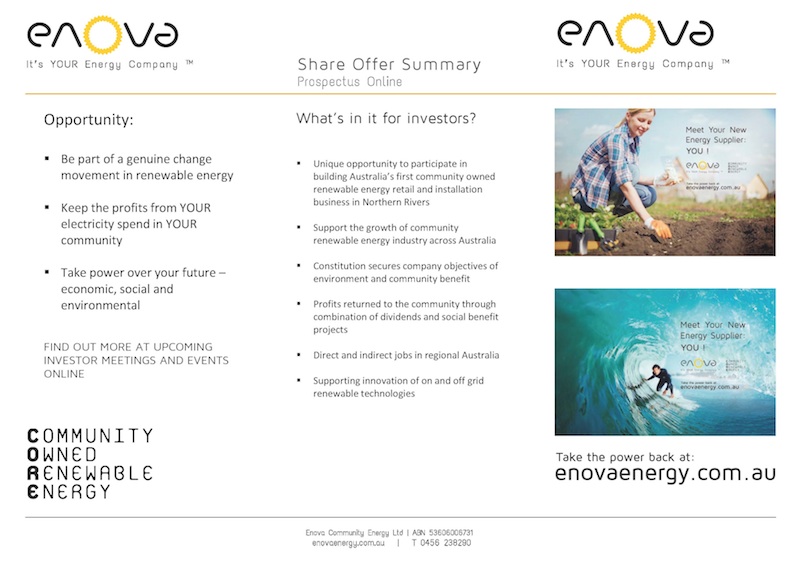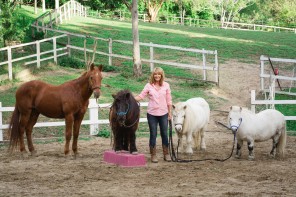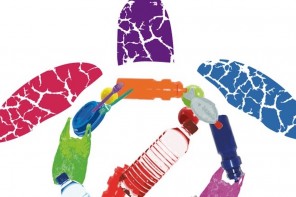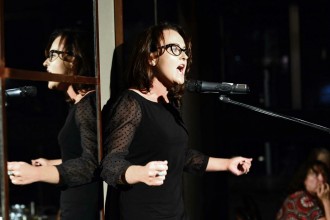Enova Energy’s historic licence as the first community owned electricity retailer is just the first step in a blueprint that Alison Crook is planning will cover everywhere from Byron Bay to Tasmania, writes Candida Baker.
Imagine if, as an individual, you haven’t as yet been able to afford to put solar panels on your house, or as a renter you simply aren’t able to do so. Then imagine that a community-owned renewable energy electricity company comes along, and offers you a chance to switch to a not-for-profit Northern Rivers based company with 100% Green Power, you’d be interested, right?
Well, welcome to Enova Energy – the very first community owned company to be given a licence as an electricity retailer. “It’s historic,” says co-founder and Chair of Enova, Alison Crook, AO, “there are no other community owned retailers in Australia, and we are the first such to be granted a licence by the Australian energy regulator.” At the moment Enova is in the last stages of gathering investors, and at a price of $1000 per share there are plenty of people in the Northern Rivers who are choosing to invest in a project which will not only provide an ongoing supply of renewable energy, but also jobs and income into the region. (If you’re interested you can download the prospectus here: (enovaenergy.investors/)However, says Crook, you don’t have to invest in order to sign up with Enova once they are up and running.
“We’ve been surprised also by the amount of interest from outside the region,” Crook says. “There’s strong interest from the Gold Coast and Queensland, and all parts of New South Wales. Renewable energy is going to be such a huge topic in the next decade with people beginning to feel the dramatic impact of climate change.”
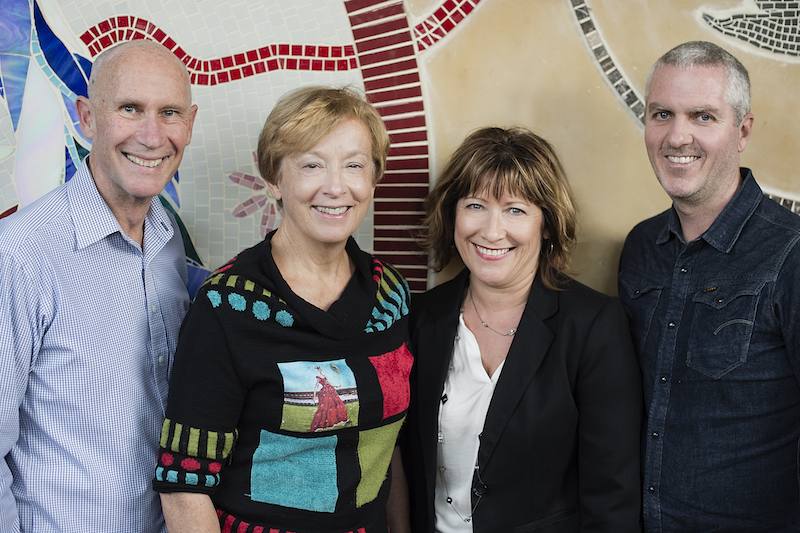
From left to right: CEO and co-founder Steve Harris; Chair and co-founder Alison Crook, AO; marketing manager and co-founder Melissa MacCourt and technical manager and co-founder Patrick Halliday.
Crook comes to her position at Enova with an impressive list of credentials including six years as Deputy Vice-Chancellor of Monash University prior to her move to the Byron Shire with her husband Alan in 2006, but her connection to the region goes back much further.
“My family is actually from this region,” she says, talking to me on the verandah of her beautiful home at Coorabell, with its spectacular views across the hills to the ocean. “I was born in Grafton and my mother was born in Alstonville, and when I was a child we used to come back to stay with my grandmother in Grafton all the time. Later on, when Alan and I were living and working in Brisbane, we would drive through the region, and I think it was always in the back of our minds that we would like to live here, so in 1998 we made the decision to buy some land so that we could build when we wanted to, and move up here to retire – or,” she laughs, “semi-retire.”
As for many people it was CSG that was a tipping point for Crook, and the beginning of the journey towards the creation of Enova. “Obviously what we are all drawn to is the natural beauty of this area,” she says, “and when you live here, I think it’s an obvious next step that you want to protect this environment. When the CSG debate began, I started to do some voluntary work with the sustainability officer at Byron Council to see if there was something I do to help the Shire demonstrate leadership in the area of climate change.”
For Crook, the idea of volunteering is deeply embedded in her work ethic. “That’s how I met Alan,” she says. “I went up to PNG in 1973 as an Australian Volunteer Abroad, and he was working up there. My time in New Guinea taught me a lot about how communities work, and how important social cohesion is.”
Environmentally aware people from across the region had been trying to get more community renewable generation projects going for a number of years, but it had gradually become clear that without a community retailer to buy and sell the electricity that wouldn’t be possible.
“You can divide the industry into three sections,” she explains. “The first is the industry that generates electricity. In Australia the vast bulk of our electricity is generated using fossil fuels, and only about 20% from renewable energy. Then there is the distribution arm of the industry – the poles and wires. In this area it’s Essential Energy which is government owned, and whoever is selling or generating, Essential Energy is still the distributor. Last of all are the retailers (Origin, AGL and Energy Australia are the big three) who link into the market, buy power from the grid and sell it – and that is what we will be doing.”
As a further example, Crook explains the difference between a company such as COREM – Community Owned Renewable Energy Mullumbimby – and Enova. “When they achieve their goal of generating power from the Drill Hall in Mullum they need someone to actually purchase it and sell it,” Crook says, “because the power has to be transferred back into the grid, and big companies don’t want to have anything to do with it, because that kind of operation is too small for them to relate to – even the small community windfarms struggled to find a company in the beginning.”
Gradually, as the vision for Enova took shape, Crook and Enova’s co-founders – CEO Steve Harris; marketing manager, Melissa MacCourt and technical manager Patrick Halliday, realised that what they were creating was a model that could then easily be replicated elsewhere, and with their licence covering Queensland, New South Wales, South Australia, the ACT and Tasmania, their goal is to help other communities create similar models.
“There are all sorts of ways Enova can work with communities,” says Crook. “Once we’re set up, we could choose to franchise, some communities might want to share our back-office systems and services, and others might simply want to use us as their retailer.”
It’s easy to see the appeal of a company such as Enova in the Northern Rivers, with a population concerned with sustainability, and Crook believes that it’s the sense of control and ownership which will bring investors and customers on board with the project. “It has real appeal,” she says. “It’s a way for all of us to be in this together in terms of doing something about climate change and reducing carbon emissions. If we can make this happen we can prove we can drive change from the grass roots up – and in this area, with its long history of protesting against damage to the environment we know that it works. I think there’s more a recognition that we simply can’t wait for our politicians to lead us in the area – we have to lead ourselves. It also gives politicians more confidence to create sensible legislative change if they can see the community is committed to it.”
Already, says Crook, Bellingen, Coffs Harbour, Port Macquarie and Newcastle are ready to jump on board once the scheme is rolled out. Fifty percent of the profits after tax and reinvestment will go to the not-for-profit arm for social benefit projects to help ensure that the whole community can participate in the shift to renewable and a more decentralized model of energy. “We know that any energy retailer needs only 4-5000 customers to be viable,” Crook says, “so in this region alone which has 130,000 people we don’t need a big pickup. Add in everywhere else, and the maths is good! If we are serious about lowering carbon emissions then we have to take the whole community with us.”
From a lay person’s point of view I wonder about switching retailers – is it easy, I ask. “Absolutely,” says Crook. “But we’ll be building our list of people until we are up and running after the New Year – and of course the most important point is that we must get funded.”
So to the nitty gritty: To invest it costs $1000 per share and people can ‘share’ shares, or purchase through their superfunds. They can do register on our website to be sent a BPay number, or they can print out the application form which is also online from the online prospectus, and send it with a cheque to the registry.
“If we don’t raise sufficient money every investor gets their money back,” says Crook. “It’s totally safe and it’s kept in a trust fund. If anybody has any questions they should ring us on 0456238290 visit the website enovaenergy or send an email to the [email protected]


![Enova_Surfmain]](https://www.verandahmagazine.com.au/wp-content/uploads/2015/10/Enova_Surfmain.jpg)
